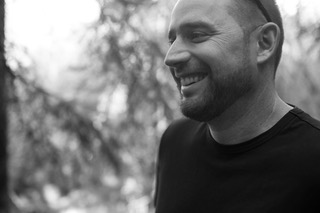THE CASE FOR PERINATAL REHABE
Pregnancy is the ultimate endurance performance. Your body starts changing and adapting as soon as your pregnancy starts, and has to constantly adjust for around 40 weeks. Every system in your body is affected by pregnancy; from hormonal and gastrointestinal, to respiratory and circulatory. When you are pregnant your muscles, joints, skin and other tissues have to accommodate for the growing baby. How you move has to change too. There is no sport that has the same demands on your body for such a prolonged period of time. When pregnant, you don’t get rest days, there are no breaks from the training, and it gets progressively harder as it goes.
What are some of the changes that happen in the body during pregnancy and childbirth that need to be addressed? One is diastasis rectus abdominus, otherwise known as diastasis recti or ‘split abs’. This is the normal process that happens in nearly every pregnancy, where the rectus abdominis muscles (the long superficial ab muscles that go from your pubic bone to your ribs in the front of your torso) widen and thin in between the two sides of the muscles to allow the belly to expand. As well, there is a significant amount of pressure on the pelvic floor during pregnancy that decreases its capacity by about 25%.
Another change that occurs is relaxation of the ligaments, which is essential to allow for joint expansion and movement, but can lead to instability which puts strain on the muscles that support the area. Clearly, the body goes through a lot of challenges while pregnant.
If pregnancy is like a performance sport, then childbirth is like the ultimate sports injury. All the ‘training’ you have done over the past 9-10 months ends suddenly, with either the major traumatic event of vaginal delivery, or a major surgery when a caesarean section is performed. Your body is pushed to its limits physically, mentally, emotionally, and there is a risk of complications or infection. If this was a sports injury there would be weeks and months of rehab, to help the body recover and return back to its previous abilities. Yet, this is not typically the case here in Canada. Instead, you are essentially left to figure it out on your own. There may be some vague guidelines such as “don’t exercise for 6 weeks”, or “no lifting anything over 10lbs” and “keep your scar clean and dry”. That seems like a pretty poor way to handle such a significant event.
So what could be done differently? How could we treat pregnant and postpartum women like the endurance athletes that they are? What if we focused on care both during and after pregnancy? Perinatal rehab could address the aches and pains that show up during pregnancy such as sacroiliac joint pain, sciatic pain, carpal tunnel syndrome, and sore ribs from growing babies. It could include some basic core stability exercises that are safe to do during pregnancy and one of the first steps of retraining postpartum. As well, encouraging a maintenance of activity during pregnancy will help keep the body strong and able to handle both delivery and then recovery.
In the early stages of postpartum recovery it is important to focus on these three aspects; to relearn how to move, repattern muscles and nerves that haven’t worked together in months, and to retrain core control, alignment and breath. The goal is to restore proper movement, it is not about exercise. This retraining could be as simple as starting with some breathing exercises for about 5 minutes each day. Setting a foundation of proper movement allows you to gradually increase your strength and function so you are able to handle whatever else comes your way. Even if you are many years postpartum, it is not too late to start the process of retraining.
Making perinatal rehab a priority will help you through the incredible process of pregnancy and childbirth. Having a therapist who is experienced and trained in perinatal care is one step in the process. If you have questions or are looking for guidance we are happy to help you, at any stage of your journey! Let’s work together to improve perinatal care.
Susie MacPhee, BKin, CAT(C)
Athletic Therapist
Bragg Creek Physiotherapy
www.braggcreekphysio.com























